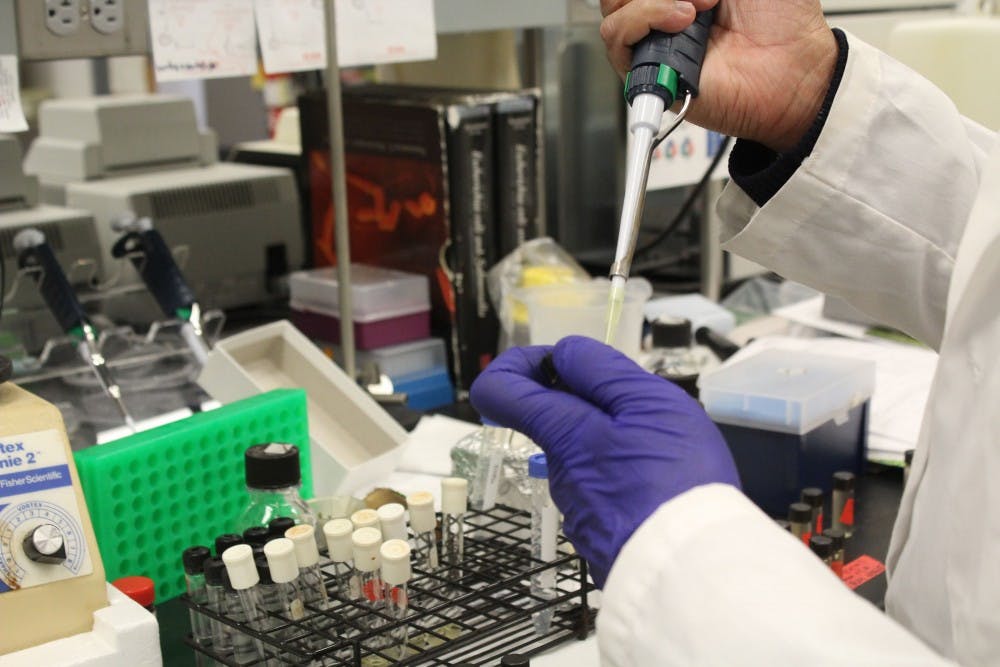In our age, there exist countless different fields of scientific study, fields that produce unimaginable quantities of data and research. Some of the Earth’s brightest minds come together in the scientific community and produce constant streams of discovery and innovation. At the same time, there exist countless politicians and public policymakers whose jobs, specifically regarding the scientific community, are to manage and interpret scientific research.
They do this quite literally: The U.S. spends tens of billions of dollars funding scientific research each year, in fields ranging from physical scientific studies to technological and social sciences, and politicians direct that funding. Legislators also manage scientific research abstractly: Once research on a specific topic has been completed and submitted, legislators must decide what that research means for the political community, and they decide how it should influence their legislation. This process happens constantly, which is why there are congressional committees and subcommittees on science, space and technology.
This process, the move from funding to research to interpretation to legislation, is a cornerstone of American politics, and it has helped advance the U.S. to the point where it is now. Unfortunately, to some degree this process is currently malfunctioning.
Political discourse today is so deeply attached to scientific study that for our democratic process to function, it is necessary that politicians fill a particular role, and scientists who research for the state to fill a particular role. The process is malfunctioning because in some places these two roles are becoming blurred, and at times do not even remain distinct. Some popular scientists now make imposing claims about public policy, and some politicians mistake their power to fund scientific study for power to manipulate it or ignore it. These two scenarios serve to harm the current process of using scientific research to inform legislation, and should be guarded against.
Fortunately, this problem is not extremely prevalent; each day the scientific research and political legislation process carries forward successfully. Rather, it is worth speaking about before it gets in the way.
Consider the problem with these two things occurring on a larger scale than they currently do. First, if politicians began using scientific findings as resources to promote immediate legislative action, or if they ever outright ignored scientific findings to avoid legislation. Second, if scientists doing research for the U.S. government began tuning their research to a political end. Those two possibilities would stem from opposite ends of the science-politics spectrum, but each would be as harmful as the other.
Science and politics keep each other in check, as opposed to outrunning or overstepping one another. On the flip side, the two groups should promote each other, but not to escalate their positions to unwarranted heights. It is in both groups’ self-interests to maintain such a relationship, because they will neither be tempted to get in each other’s way nor will they be tempted to corrupt one another.
ASU is an elite research university, and with that, we students can bring a great deal of solutions into the world. On top of working to add to ASU’s vast research bank, we must be sure to do it with public reform in mind, but we must also be sure not to do it for the sake of public policy. Those men and women at ASU who will become our future senators and congressmen and congresswomen should be sure to work to promote scientific research and informed legislation, but they should also be sure to consider the ramifications of scientific findings before morphing them into legislation.
Related Links:
Being anti-science shouldn't be a political stance
Youth in politics: The importance of college activism
Reach the columnist at gheiler@asu.edu or follow @heilergeorge on Twitter.
Editor’s note: The opinions presented in this column are the author’s and do not imply any endorsement from The State Press or its editors.
Want to join the conversation? Send an email to opiniondesk.statepress@gmail.com. Keep letters under 300 words and be sure to include your university affiliation. Anonymity will not be granted.
Like The State Press on Facebook and follow @statepress on Twitter.




